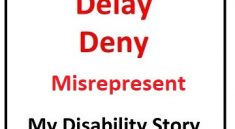Privately insured long term disability plan lawsuits litigation vs ERISA regulated plans, State court, Jury trial, Damages, Expert witnesses, Evidence not restricted
From Free Advice Legal.
“Lawsuits on privately insured long term disability plans are litigated very differently from lawsuitson disability plans regulated by ERISA.
The four most significant advantages of litigating private long term disability claims are:
- state court: your case is heard in most cases in state court (not federal court) under legal rules and procedures that are more favorable to you, the policyholder;
- jury trial: you have a decision based on a community of your peers rather than one federal judge;
- damages: you are free to recover several types of damages from insurer
- right to bring expert witnesses to support your claim. Acceptable discovery may include discovery relating to claims handling and any other issues relevant to your case.
- evidence: unlike group insurance lawsuits (which are governed by ERISA), you are not restricted at trial to introducing only evidence from the existing administrative record.
Causes of action
If you are suing for wrongful denial of an individual long term disability insurance claim, you can typically state two causes of action – one for breach of contract and another for bad faith. (You can also file for misrepresentation, for negligence and other state law causes of action.)
1. Breach of contract
If the insurance company fails or refuses to settle a disability claim which should be paid under policy terms, it is in breach of the contract, and you, as the policyholder, can sue for the breach of contract. If you win your breach of contract claim, you receive the retroactive benefits plus interest plus reinstatement of the insurance benefits. That’s it.
However, winning a breach of contract claim does not automatically give you attorney’s fees, emotional distress damages or punitive damages. To recover these, you must first allege that your claim denial involved bad faith conduct on the part of the insurance company.
2. Duty to deal fairly with insureds (Bad faith)
When you purchased your long term disability insurance policy, it came with the understanding that the insurance company would settle your claim(s) in good faith, that the company would make a reasonable effort to pay you. Wrongfully denying a legitimate claim or fraud in handling your claim is termed “bad faith”. The rules regarding what constitutes “bad faith” and what doesn’t vary among the states. A legitimate dispute or disagreement over coverage or benefits will likely not give rise to a bad faith claim.
If you can prove that the denial was “unreasonable”, you could recover “consequential damages” (out-of-pocket expenses paid because of the denial), and “extra-contractual damages” to compensate for mental and emotional distress, and, in some cases, “punitive” or “exemplary damages” designed to punish the insurer from wrongfully denying similar claims in the future. These damages are rare.”
Read more:



